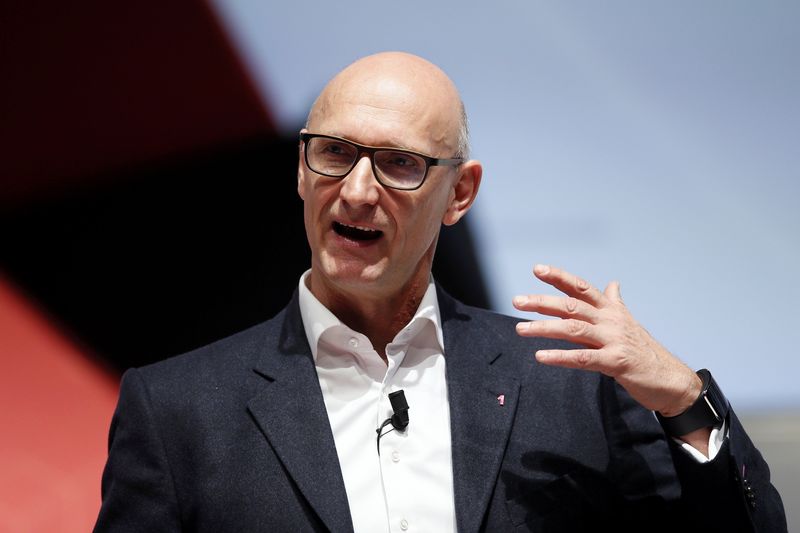By Leila Abboud
BARCELONA (Reuters) - Europe's two biggest telecom operators have called on regulators to be flexible and pragmatic in finalising rules to protect the openness of the Internet, to allow them to give priority to certain kinds of data traffic on their networks.
The chief executives of Vodafone and Deutsche Telekom said on Monday at the Mobile World Congress in Barcelona that network operators needed to give special treatment to data for new services like connected cars and smart electricity meters to ensure that they functioned properly.
Industry expects such specialised services could eventually generate billions in additional revenue as everyday tasks are increasingly connected to the web.
In both the United States and Europe regulators are forming policies on how to protect "net neutrality", the concept that all traffic on the Internet must be treated equally regardless of content or source.
The issue often pits providers of bandwidth-hungry internet services such as Netflix, Spotify and Google (NASDAQ:GOOGL)'s YouTube against the telecoms and cable companies. Meanwhile, governments want to ensure that network owners do not become gate keepers thwarting start-ups or new services by imposing special charges for high volume traffic.
"We favour net neutrality, but we need to be allowed to have quality classes to enable new services in the Internet of Things," said Deutsche Telekom's chief executive, Tim Hoettges.
Under new rules passed last week by the U.S. Federal Communications Commission, setting aside capacity for such "specialised services" - providing connectivity to a smart meter for example - will be permitted as long as they do not disadvantage normal internet services for homes and businesses.
However, the details are not all public since the FCC has not yet published the full text of its net neutrality rules.
In Europe negotiations are continuing between the European Parliament and member states over final net neutrality rules, which could be concluded by late spring. The Parliament version contains specific measures aimed to prevent abuses of the exception for specialised services, but it is expected to be watered down, experts have said.
Asked about the FCC's moves, Vodafone's chief executive, Vittorio Colao, said: "We looked at it and there is enough room in the position for it to be acceptable or a non-acceptable one ... We need to understand the implications."
He said that in conversations with Tom Wheeler, the head of the FCC, he had been assured that the U.S. policy would have room for telecoms providers to develop new services around connected objects.
"I have asked explicitly to the chairman of the FCC, 'so, are specialised services, fast lanes and quality of service forbidden or not ?'. The answer is no, they are not forbidden. We understand that they will be there. Are they explicitly authorised? No they are not."
"Americans are great pragmatists so they will do what is right. In the end they will not think about principles."
A spokesman for the FCC later said that paid-for prioritisation and so-called fast lanes will be banned under the U.S. rules. That means that network owners cannot accept payment to favour some traffic on the final line into homes and businesses.
On Monday the FCC Commissioner met with European regulators to explain U.S. policies on net neutrality and radio spectrum. He was equipped with a stack of cards emblazoned with the main points of the U.S. Open Internet rules, which seemed designed to rebut some common industry criticisms.
"OVER THE TOP"
Separate from the net neutrality debate, Deutsche Telekom boss Hoettges also renewed a call for companies like Google and Facebook to be regulated since they offer communications services such as web-based texting and chats, much as telecoms operators do.
"There is a convergence between over-the-top web companies and classic telcos," he said. "We need one level regulatory environment for us all."
Colao added that web-based communications services like Microsoft (NASDAQ:MSFT)'s Skype or Facebook's WhatsApp also needed to obey national laws under which governments can demand voice or text data in the course of criminal or terrorism investigations.
"There is a legitimate interest by governments to protect citizens, our public squares, and our homes. This requires some access to digital data ... but the rules must be public and clear, and the level of access should be monitored."
"It's not legit for over-the-top players to reply that they do not respect the laws of your jurisdiction," he added.
